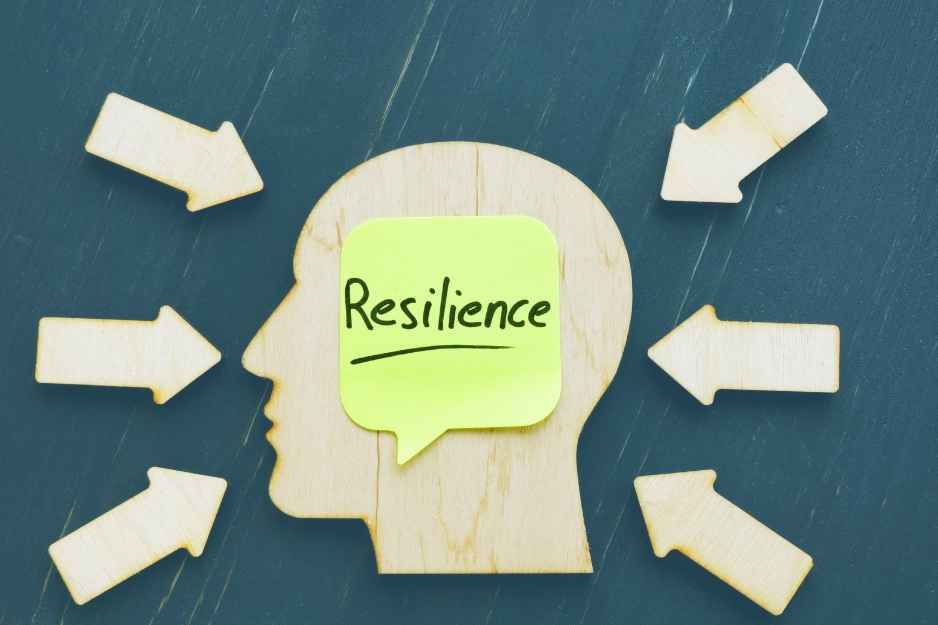The medical profession is demanding, and the toll it takes on mental and emotional health is often underestimated. Whether you’re a student working through the pressures of medical school, a resident navigating long hours, or an experienced practitioner managing high-stakes situations, burnout is an ever-present threat. Understanding how to build resilience and cope with burnout is crucial for long-term success and well-being in medicine.
In this blog post, we’ll explore strategies for building resilience, coping with burnout effectively, and maintaining mental health in healthcare. It’s important to remember that even though burnout is a common experience, it is preventable and treatable. By proactively developing resilience and managing stress, medical professionals can continue their careers with a sense of fulfillment and balance.

1. Understanding Burnout in Medicine
Burnout is a state of physical, emotional, and mental exhaustion caused by prolonged stress. In the medical field, the high-stress environment, long work hours, patient demands, and emotional toll often lead to burnout. The symptoms of burnout include:
- Emotional exhaustion
- Decreased sense of personal accomplishment
- Depersonalization (feeling detached or disconnected from patients)
Physicians and medical students are particularly susceptible to burnout because of the nature of their work, which requires emotional investment, critical thinking, and decision-making under pressure. The consequences of burnout in medicine include compromised patient care, increased medical errors, and mental health challenges like anxiety and depression.
2. Building Resilience in Medicine
Building resilience is an essential part of preventing burnout. Resilience is the ability to bounce back from adversity and maintain a positive outlook despite challenges. Here are a few strategies to help you build resilience in your medical career:

- Develop a Support System: Building a network of supportive peers, mentors, and family members is crucial. Talking to colleagues who understand the demands of the profession can provide a sense of camaraderie and validation. Seek out mentors who can guide you through challenging times and provide advice based on experience.
- Practice Self-Care: It’s easy for self-care to fall by the wayside during medical training, but it’s important to prioritize your physical and mental health. Regular exercise, adequate sleep, and a balanced diet can help reduce stress and improve mood. Furthermore, engaging in activities you enjoy, like hobbies or spending time with loved ones, can help recharge your emotional batteries.
- Mindfulness and Meditation: Practicing mindfulness and meditation can help you stay grounded in the present moment and reduce stress. These practices have been shown to improve emotional regulation and overall well-being. Even just a few minutes of deep breathing or a guided meditation can help reduce the impact of stress.
- Set Realistic Expectations: Medicine can be overwhelming at times, and it’s easy to set unrealistic expectations for yourself. Recognize your limits and set achievable goals for your work. Celebrate small victories, whether it’s completing a challenging case or taking time for a self-care break. Acknowledging your progress can foster a sense of accomplishment and increase motivation.
3. Coping with Burnout Effectively
Coping with burnout involves recognizing the signs early and taking proactive steps to address them. Here are some practical tips for managing burnout effectively:
- Acknowledge Your Feelings: The first step in coping with burnout is to acknowledge it. If you’re feeling overwhelmed, emotionally drained, or disconnected, it’s important to recognize these signs and take action. Seeking help, whether through therapy, peer support, or speaking with a mentor, is a key step in the recovery process.
- Seek Professional Help: If burnout symptoms are persistent or worsening, it may be time to seek professional help. Mental health professionals, including therapists or counselors specializing in healthcare, can provide strategies to cope with stress and improve emotional well-being. Cognitive-behavioral therapy (CBT) is often effective for addressing burnout symptoms.
- Time Management: Poor time management can contribute to burnout by making you feel constantly rushed and behind. Develop a schedule that includes time for work, rest, and self-care. Prioritize tasks, delegate when possible, and learn to say no when you’re overwhelmed. Proper time management can help reduce stress and increase productivity.
- Take Breaks: Regular breaks are essential for maintaining focus and preventing burnout. Whether it’s taking a short walk, having a meal away from work, or engaging in a relaxing activity, breaks help recharge your energy and improve concentration.
4. Mental Health in Healthcare
Maintaining mental health in healthcare is an ongoing process that requires commitment to self-awareness and support. As a healthcare professional, it’s important to recognize that mental health is just as important as physical health. Here’s how you can maintain mental well-being while working in medicine:
- Destigmatize Mental Health: There is often a stigma associated with mental health struggles, especially in high-performing fields like medicine. It’s important to acknowledge that experiencing stress or burnout is not a sign of weakness. Being open about mental health challenges can foster a supportive environment and reduce stigma.
- Work-Life Balance: Establishing boundaries between your work and personal life is crucial for mental health. While it can be difficult to fully disconnect, setting aside time for personal activities and rest can help prevent burnout. Taking regular vacations, spending quality time with family and friends, and engaging in non-work-related hobbies can help you recharge and maintain a healthy balance.
- Engage in Reflection: Reflecting on your experiences and emotions can help you process stress and find meaning in your work. Journaling, speaking with a mentor, or engaging in reflective practice can provide clarity and help you develop greater emotional resilience. Reflection can also help you reconnect with the reasons you entered the medical field in the first place.
5. Resources for Support
In addition to the strategies mentioned above, various resources can provide further support for those in the medical field:
- Peer Support Programs: Many hospitals and medical schools have peer support programs designed to help medical students, residents, and professionals cope with the challenges of the field. These programs provide a confidential space for discussing burnout and stress with individuals who understand the demands of healthcare.
- Medical Student Organizations: Various organizations support medical students’ well-being, such as the Canadian Medical Association and the Canadian Federation of Medical Students. These organizations provide resources, workshops, and events focused on managing stress, resilience, and mental health.
For more information on navigating the medical field and preparing for the challenges ahead, visit MD Consultants’ advice on handling medical school applications.

Conclusion
Burnout is a real concern for healthcare professionals, but it is preventable with the right strategies. Building resilience, practicing self-care, and seeking support when needed are key to managing stress and maintaining mental health in the medical profession. By taking proactive steps to care for yourself, you can continue to provide the best care for your patients and maintain a fulfilling career in medicine.
Related Reading: Dealing with Premed Stress: Advice from a Resident Physician


